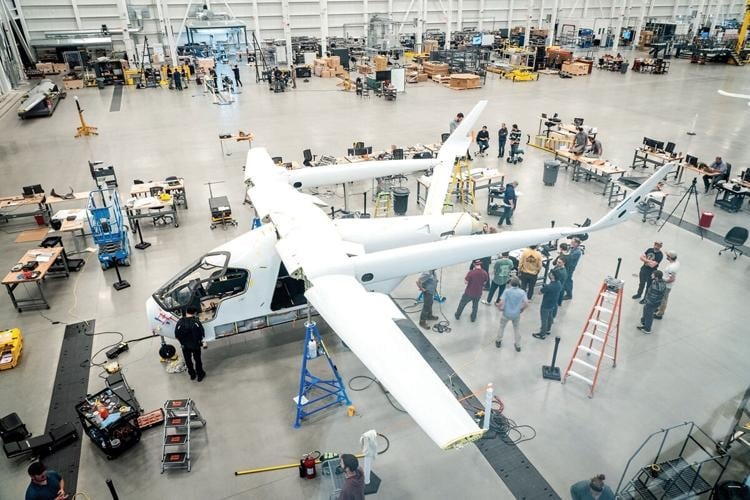
BETA Technologies announced Thursday it will receive a $300 million investment from GE Aerospace — pending regulatory approval — as the companies team up to focus on hybrid electric aviation.
“We believe the industry is on the precipice of a real step change,” Kyle Clark, CEO of South Burlington-based BETA Technologies, said in a Thursday press release. “We look forward to partnering to co-develop products that will unlock the potential of hybrid electric flight.”
Clark and his new collaborators plan to design a hybrid electric turbogenerator, which will build on existing engineering at both companies to increase the range, speed and power of future aircraft at BETA and elsewhere.
The privately owned Vermont firm was founded in 2017, and has since emerged as a global leader in aerospace engineering, backed by contracts with UPS and the U.S. Department of Defense, among others. The company opened a 188,500-square-foot production facility in South Burlington in 2023, and also runs a battery testing site in St. Albans.
If the deal is approved, the new influx of capital will bring BETA’s total funding to nearly $1.5 billion.
The equity investment from GE Aerospace will also give the legacy corporation the right to appoint a new director to BETA’s board.
BETA did not immediately respond to a request for comment on potential effects to its Vermont operations.



